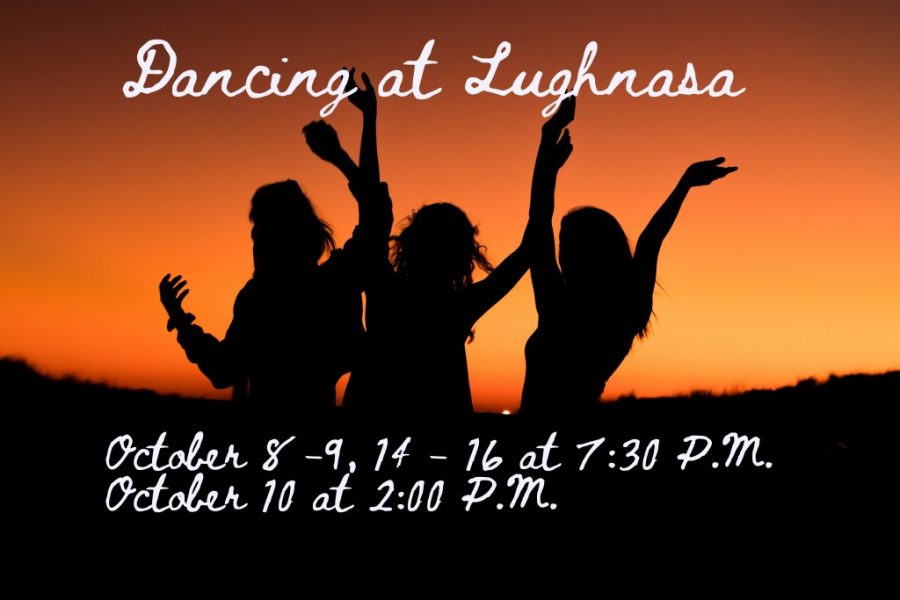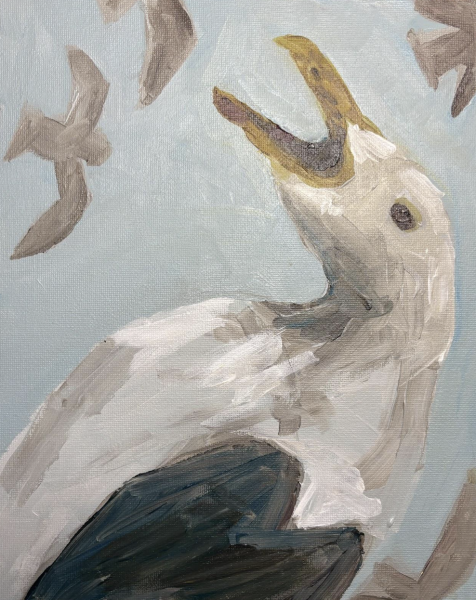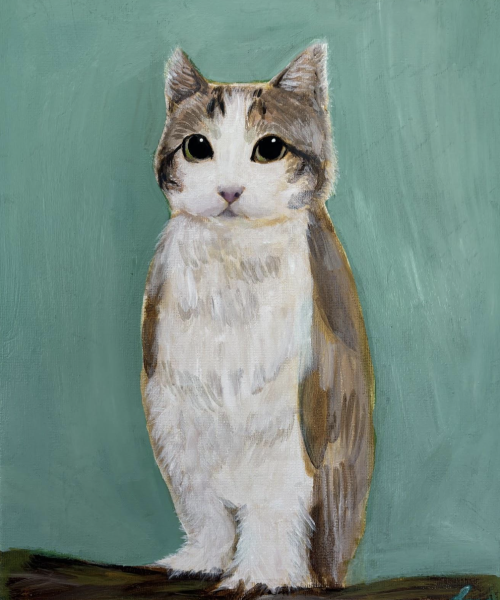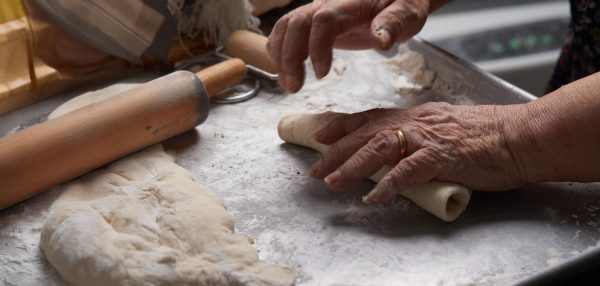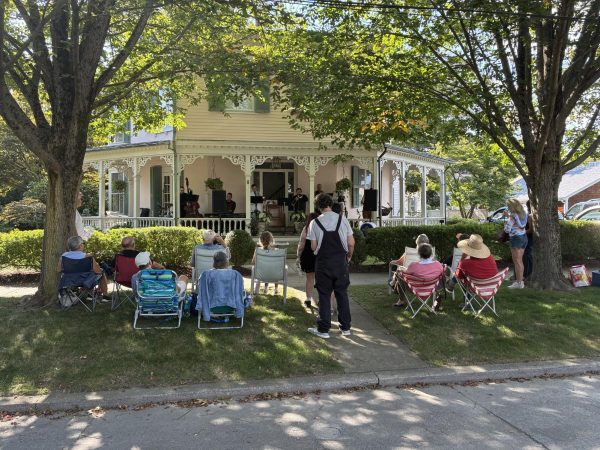RWU’s “Dancing at Lughnasa”: A bittersweet tale of love and change
Courtesy of RWU Department of Performing Arts
“Dancing at Lughnasa” will be performed in the Barn until October 16.
Soft Irish folk music drifted through the air, welcoming audience members to RWU Theatre’s first mainstage production of the season: “Dancing at Lughnasa.”
The stage was set with a quaint domestic scene — a basket of laundry resting on a kitchen table, an old stove cluttered with pots and pans, knitting set between a pair of chairs. Soft, green lights indicated a little garden, and a pair of handmade kites rested against a stone bench.
From the wireless radio set in one corner to the paintings of Jesus Christ and the Virgin Mary that hung on the wall, the “Dancing at Lughnasa” set perfectly reflected the unembellished yet intricate tone of the play.
The premise was simple: five sisters in rural 1936 Ireland, faced with a rapidly changing world yet drawn together by moments of music and laughter. This straightforward basis allowed the emotional complexities of the family’s relationships to shine.
The eight performers took the audience through the full spectrum of human emotions, from joyfulness to tragic heartache.
This journey was made all the more eloquent by one exciting absence — masks, the cast could finally perform on stage without them. For the first time in many months, live theatre was possible in all its glory.
Just as the play’s Mundy sisters found escape from their hardships in music and dance, so too could audiences find respite from worries in the performing arts.
There is a clear connection to music, as the title suggests, making it a central theme of the play. The characters are at their closest when set free to dance, sing and laugh, and the affection often hidden beneath sibling bickering and grueling worry comes to light.
Such lighthearted moments are a welcome lull in what seems to be a never-ending barrage of blows against the family, as faith is called into question and the industrial revolution threatens to rip away the sisters’ modest income.
Through it all, though, this story is one of family and the many forms it can take. It is a theme we can all recognize, a narrative that, despite the historical setting, rings true in all our lives.
Grounded as it is in everyday tasks — the cast can be seen knitting gloves, peeling potatoes, folding laundry and so forth — we are transported into the Mundy home and experience their joys and sorrows as our own.
“Dancing at Lughnasa” does not pull any punches and is a heartbreakingly beautiful production you don’t want to miss. The remaining performances of “Dancing at Lughnasa” will be held on Oct. 14, 15 and 16 at 7:30 p.m. Tickets can be purchased at rwu.booktix.com or at the door of The Barn.

